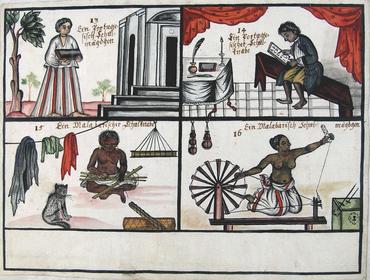Early schools of Tranquebar

The arrival of the missionaries to Tranquebar from 1706 onwards deeply influenced the educational development of southern India. Education was a central element in the pietistic strategy of the Danish-Halle Mission to convert the Tamils to Christianity. Within a few decades, the mission established an effective school system in Tranquebar and its territory, which made it possible for a broad segment of the Tamil youth to receive basic school education. The educational success of the missionaries soon spread from the Tranquebar area to other parts of South India, where the missionaries established a number of schools. The school activities of the missionaries among the common Tamil population were the first steps towards the creation of a general school system in India and a precondition for the development in the nineteenth century, where the public authorities took responsibility for the education of Indian children. The legacy of the Danish-Halle Mission is still evident in Tranquebar, not least in the field of education, where the town holds an unusually large number of private schools, including two teacher training institutes, of which all but one are owned and run by Christian organizations.
Grinder-Hansen, Keld. (2009). “The schools of Tranquebar: An educational field of cultural encounters and conflicts”, in Esther Fihl and A.R. Venkatachalapathy (eds.), Cultural Encounters in Tranquebar: Past and Present. Special issue of Review of Development and Change: Vol. XIV no. 1-2.
